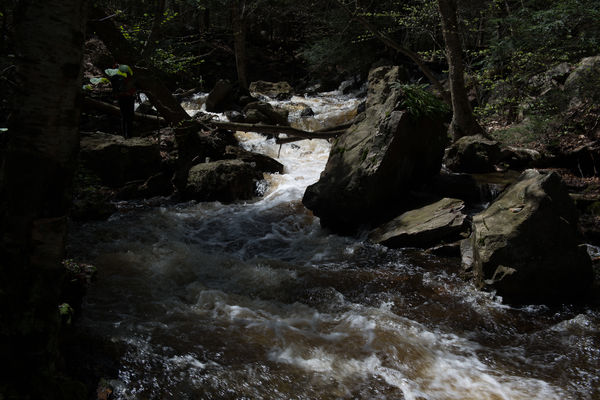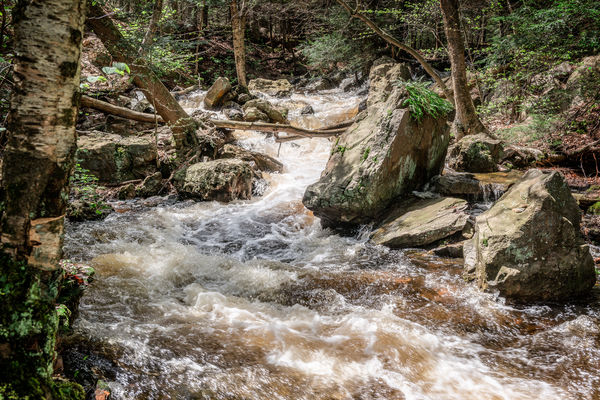Questions About Exposure Compensation
Aug 12, 2017 12:40:58 #
Is the camera's Exposure Compensation the same as adjusting exposure in post?
Is there an advantage of one over the other?
Thanks
Mac
p.s.
If not could you explain the difference?
Is there an advantage of one over the other?
Thanks
Mac
p.s.
If not could you explain the difference?
Aug 12, 2017 12:42:07 #
Aug 12, 2017 12:52:17 #
Aug 12, 2017 12:52:22 #
Do exposure compensation in the camera. If you wait to post processing, you will be working with a file that is not properly exposed. That would cause problems with detail in the highlights, shadows, or both. See ricardo's response if you want to be sure to get a good file to work with.
Aug 12, 2017 12:57:42 #
ricardo7
Loc: Washington, DC - Santiago, Chile
Mac wrote:
Is the camera's Exposure Compensation the same as adjusting exposure in post?
Is there an advantage of one over the other?
Thanks
Mac
p.s.
If not could you explain the difference?
Is there an advantage of one over the other?
Thanks
Mac
p.s.
If not could you explain the difference?
Close. With exposure compensation you are basically fooling the meter to
over expose or under expose. You are using exposure compensation
because you are finding the lighting conditions in which you are
working consistently give you over or under exposed pictures. With
PP you can change the exposure and do the same basic thing, but you may
not be able to make as big an adjustment as you could in camera.
Aug 12, 2017 12:59:34 #
Bob Boner wrote:
Do exposure compensation in the camera. If you wait to post processing, you will be working with a file that is not properly exposed. That would cause problems with detail in the highlights, shadows, or both. See ricardo's response if you want to be sure to get a good file to work with.
Ok Bob, that makes sense. Thank you for your help.
Aug 12, 2017 13:03:02 #
ricardo7 wrote:
Close. With exposure compensation you are basically fooling the meter to
over expose or under expose. You are using exposure compensation
because you are finding the lighting conditions in which you are
working consistently give you over or under exposed pictures. With
PP you can change the exposure and do the same basic thing, but you may
not be able to make as big an adjustment as you could in camera.
over expose or under expose. You are using exposure compensation
because you are finding the lighting conditions in which you are
working consistently give you over or under exposed pictures. With
PP you can change the exposure and do the same basic thing, but you may
not be able to make as big an adjustment as you could in camera.
Thank you Ricardo.
I liked what you said in your first post about bracketing to pick up detail in both highlight and shadow.
Aug 12, 2017 13:21:53 #
If you take picture in RAW exposure compensation much better because you receive lossless file otherwise in PP you are working with JPG and lose pixels.
Aug 12, 2017 14:01:30 #
MMC wrote:
If you take picture in RAW exposure compensation much better because you receive lossless file otherwise in PP you are working with JPG and lose pixels.
Thanks MMC, I do shoot in RAW.
Just now I was out shooting a bush just to practice with EC, and I learned that the correct exposure is not always the best exposure.
Aug 12, 2017 14:13:24 #
Darkening an over-exposed shot in PP will produce good results provided the highlights weren't blown. ETTR involves deliberately over-exposing.
Brightening an under-exposed shot in PP will be less likely to produce good results because of the noise that emerges when you brighten dark photos.
Brightening an under-exposed shot in PP will be less likely to produce good results because of the noise that emerges when you brighten dark photos.
Aug 12, 2017 14:14:55 #
R.G. wrote:
Darkening an over-exposed shot in PP will produce good results provided the highlights weren't blown. ETTR involves deliberately over-exposing.
Brightening an under-exposed shot in PP will be less likely to produce good results because of the noise that emerges when you brighten dark photos.
Brightening an under-exposed shot in PP will be less likely to produce good results because of the noise that emerges when you brighten dark photos.
Thank you R.G.
Aug 12, 2017 14:18:51 #
Aug 12, 2017 18:02:12 #
Mac wrote:
Is the camera's Exposure Compensation the same as adjusting exposure in post?
Is there an advantage of one over the other?
Thanks
Mac
p.s.
If not could you explain the difference?
Is there an advantage of one over the other?
Thanks
Mac
p.s.
If not could you explain the difference?
To a degree it is similar, but only if you shoot raw. There is no substitute for correct exposure. And if exp comp helps you to get a good exposure it will be better than anything you can do in post processing.
There is no such thing as fooling the meter. The meter is operating as it should, and merely suggesting an exposure setting. It is up to the photographer, which a solid understanding of how his/her camera works. to take that suggestion and make a good exposure. I shoot raw, and mostly manual, and I use spot meter. It's really hard to mess up on exposure.
ETTR is NOT overexposing anything. It is merely shifting the entire histogram to the right WITHOUT overexposing the highlights. The entire point of ETTR is to NOT overexpose anything. The result may look a little "high key" but it is easy to bring the image to a normal tonal range as long as nothing is overexposed.
Under exposed images, if shot as raw, can be successfully adjusted when you know what you are doing. It is often necessary to do a luminosity mask in order to apply more aggressive noise reduction and add some contrast to the dark areas.
See "underexposed" image and the adjusted one below. There is no issue in adjusting the deep shadow areas to reveal all that rich detail and texture. Would not have been able to do this if the image was shot as jpeg. In reality the image was not "underexposed" but exposed correctly for the highlights, and adjusted in post to provide a more natural tonal range. No compensation was used, but I did expose for detail in the whitewater, usign the camera's spot meter and adjusting the camera 1 stop higher (more light) than the camera's reading. Had I used the camera's reading without the adjustment, the water would have been gray, and the image would definitely have been underexposed.
Aug 12, 2017 19:11:40 #
Gene51 wrote:
To a degree it is similar, but only if you shoot r... (show quote)
Gene
Thank you for the explanations and the photo demonstration.
Aug 12, 2017 23:02:45 #
Mac wrote:
....I learned that the correct exposure is not always the best exposure.
The correct exposure is not always what the default meter reading says.
If you want to reply, then register here. Registration is free and your account is created instantly, so you can post right away.







